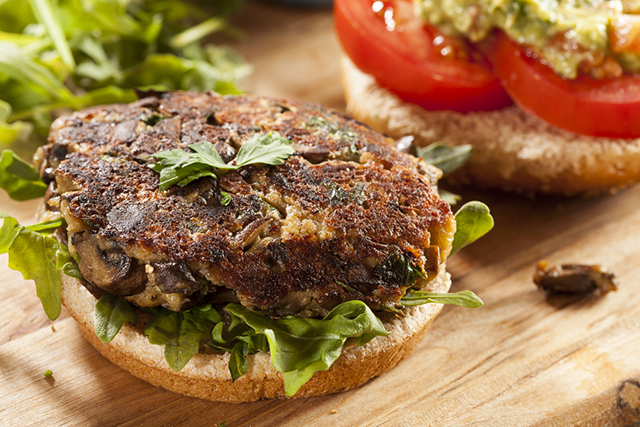
Honest, paywall-free news is rare. Please support our boldly independent journalism with a donation of any size.
If you want to live longer, feel healthier and save the world all at the same time, there’s only one thing you can do: Go vegan.
Don’t believe me?
Just look at the facts.
The most common cause of death in the United States right now is a heart attack, but if you stop eating meat, dairy and eggs, your risk of a heart attack falls by 90, I repeat, 90 percent.
See more news and opinion from Thom Hartmann at Truthout here.
Meanwhile, people who eat animal products are around three times more at risk of developing cancer than people who’ve either gone totally vegan or seriously cut back on the amount of meat they eat.
Oh, and if that wasn’t reason enough to drop meat, dairy and eggs from your diet, consider this: Breast milk infected with pesticides is about 35 percent more common in moms who eat meat than it is in moms who don’t eat meat.
But the health benefits of going vegan are almost secondary to all the good it does for the planet.
Vegans are often portrayed in the media as extremists, but when you consider the amazing amount of waste and destruction that goes into supporting our meat-heavy diet, it’s the carnivores that look extreme.
Not only does a meat-based diet require three times more fossil fuels than vegan diet, it also hoards resources that could be used to feed the tens of millions of people that go to bed hungry every night.
In fact, John Robbins, one of the world’s leading experts on vegan diets, estimates that we could feed almost 100 million people if Americans cut their meat consumption by as little as 10 percent.
Most experts have known about the benefits of going vegan for a while, but now, in what’s really a big time win for public health, the government is catching on.
The Dietary Guidelines Advisory Committee (or DGAC), a federal panel that includes some of the United States’ top nutritionists, has just released its annual diet guidelines report.
And that report is as ringing an endorsement of an animal product-free diet as you’re going to get from the US government.
Noting that the average US diet contains way too much meat and dairy, the DGAC report recommends that we start eating fewer animal products and more vegetables.
And while a couple of different diets will get the job done, the DGAC says, the best diet, especially when it comes to protecting the planet, is a vegan one.
According to the panel’s report, “The organically grown vegan diet… had the lowest estimated impact on resources and ecosystem quality… [while] Beef was the single food with the greatest projected impact on the environment; other foods estimated to have high impact included cheese, milk, and seafood.”
I’m glad the government’s finally coming around to something I realized decades ago.
The last time I ate meat was when I was a teenager, and the decision to stop eating animal products was one of the best choices I ever made.
Of course, going vegan isn’t just about feeling better; it’s about recognizing the cold hard reality that the way we eat right now is literally killing us and the planet we live on.
It’s time for all of us to face that reality and make some tough choices.
Totally abandoning meat might be too much for some people, but if we really want to save the planet and maybe ourselves in the process, we need to put down the cheeseburgers and pick up the veggie-burgers.
It’s as simple as that.
A terrifying moment. We appeal for your support.
In the last weeks, we have witnessed an authoritarian assault on communities in Minnesota and across the nation.
The need for truthful, grassroots reporting is urgent at this cataclysmic historical moment. Yet, Trump-aligned billionaires and other allies have taken over many legacy media outlets — the culmination of a decades-long campaign to place control of the narrative into the hands of the political right.
We refuse to let Trump’s blatant propaganda machine go unchecked. Untethered to corporate ownership or advertisers, Truthout remains fearless in our reporting and our determination to use journalism as a tool for justice.
But we need your help just to fund our basic expenses. Over 80 percent of Truthout’s funding comes from small individual donations from our community of readers, and over a third of our total budget is supported by recurring monthly donors.
Truthout’s fundraiser ended last night, and we fell just short of our goal. But your support still matters immensely. Whether you can make a small monthly donation or a larger one-time gift, Truthout only works with your help.